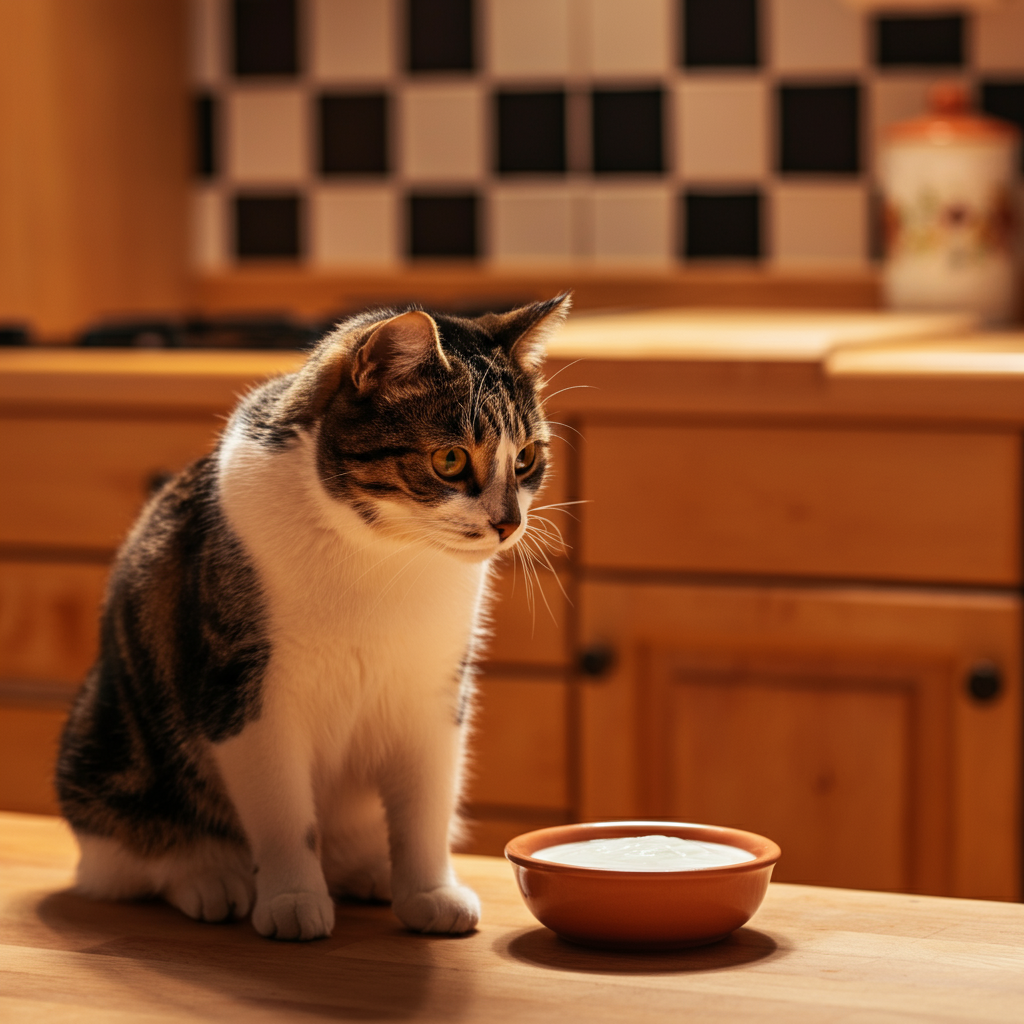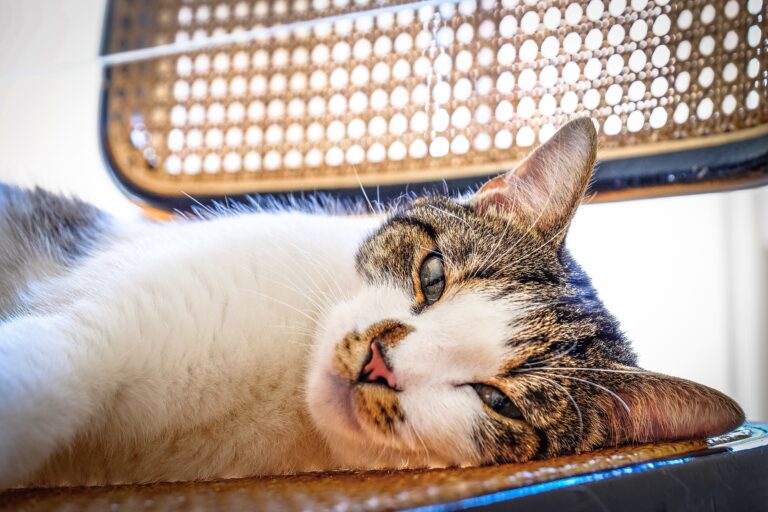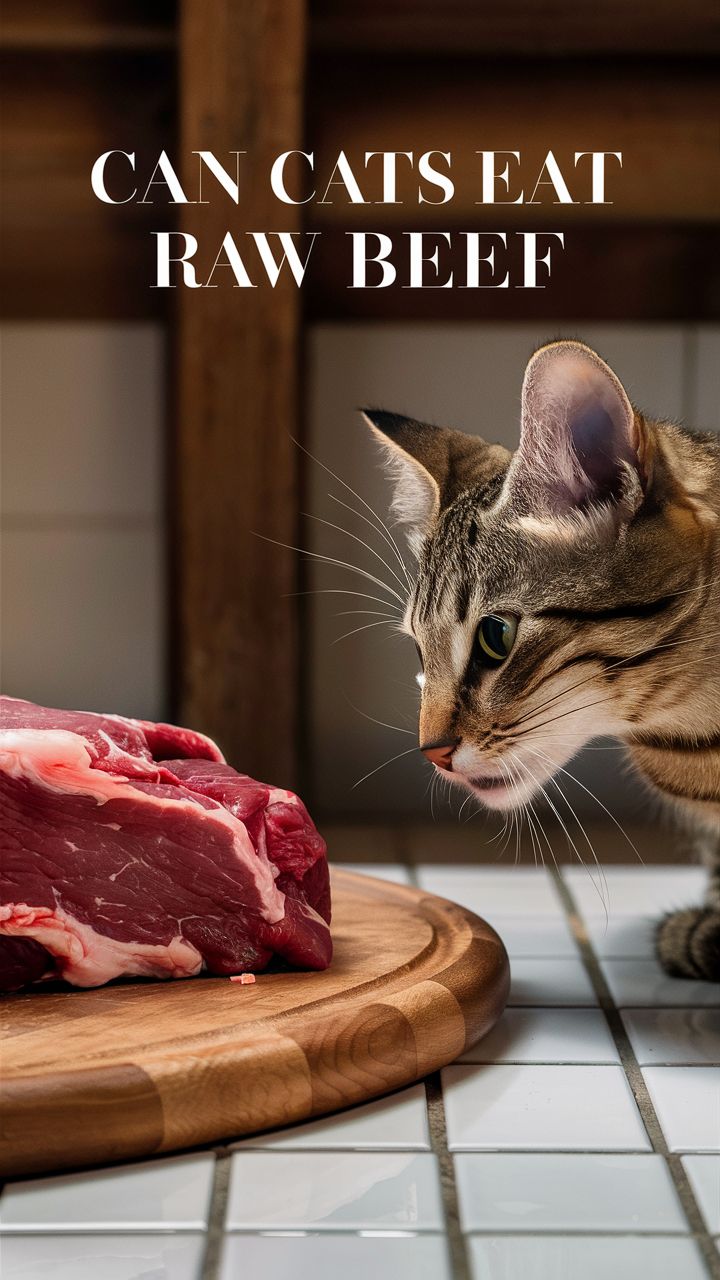Can Cats Eat Yogurt? A Complete Guide for Cat Parents
Many cat owners find themselves wondering about sharing their favorite snacks with their feline friends. Yogurt, with its creamy texture and potential health benefits, often tops the list of foods cat parents consider offering their pets. But can cats eat yogurt safely?
The short answer is yes, but with important caveats. While some cats can enjoy small amounts of plain, unsweetened yogurt as an occasional treat, many factors determine whether this dairy product is suitable for your specific cat. Understanding the benefits, risks, and proper serving guidelines will help you make an informed decision about adding yogurt to your cat’s diet.
This comprehensive guide explores everything you need to know about feeding yogurt to cats, from nutritional benefits to potential health risks, ensuring you can make the best choice for your feline companion.
The Nutritional Benefits of Yogurt for Cats
Yogurt offers several potential health benefits that might make it an appealing treat for cats. Understanding these benefits helps explain why some pet owners consider adding this dairy product to their cat’s diet.
Probiotics for Digestive Health
One of yogurt’s most significant benefits comes from its probiotic content. These beneficial bacteria can support digestive health by promoting a balanced gut microbiome. For cats recovering from antibiotic treatments or experiencing mild digestive issues, the probiotics in yogurt may help restore healthy gut bacteria.
However, cats require specific strains of probiotics that differ from those beneficial to humans. While yogurt’s probiotics won’t harm most cats, they may not provide the targeted digestive support that species-specific probiotic supplements would offer.
Calcium and Protein Content
Yogurt contains calcium, which supports bone health, and protein, which is essential for muscle maintenance. A single serving of plain Greek yogurt provides substantial amounts of both nutrients. Adult cats require approximately 200-300 mg of calcium daily, depending on their size and activity level.
The protein in yogurt is complete, containing all essential amino acids cats need. However, since cats are obligate carnivores, they derive optimal nutrition from animal-based proteins rather than dairy sources.
Additional Vitamins and Minerals
Plain yogurt contains B vitamins, particularly B12, which supports nervous system function and red blood cell production. It also provides phosphorus, potassium, and magnesium in smaller amounts.
Can Cats Eat Yogurt
While yogurt offers potential benefits, several important factors determine whether it’s appropriate for your cat. These considerations are crucial for making a safe decision about yogurt consumption.
Lactose Intolerance in Cats
The primary concern with feeding yogurt to cats is lactose intolerance. Most adult cats lose the ability to produce sufficient lactase, the enzyme needed to digest lactose, after weaning. This natural process affects approximately 90% of adult cats to varying degrees.
When lactose-intolerant cats consume dairy products, they may experience digestive upset, including:
- Diarrhea
- Stomach cramps
- Gas and bloating
- Vomiting
The fermentation process in yogurt production reduces lactose content compared to regular milk, making yogurt potentially more tolerable for some cats. However, lactose levels vary between yogurt types and brands.
Dairy Allergies and Sensitivities
Some cats develop true allergies to dairy proteins rather than lactose intolerance. Dairy allergies can cause:
- Skin irritation and itching
- Digestive problems
- Respiratory symptoms in severe cases
Cats with sensitive stomachs or histories of food allergies should avoid yogurt entirely unless specifically recommended by a veterinarian.
Weight Management Concerns
Yogurt adds extra calories to a cat’s diet, which becomes problematic for overweight or obese cats. A single tablespoon of plain Greek yogurt contains approximately 15-20 calories. For a 10-pound cat requiring 200-250 calories daily, even small amounts of yogurt represent a significant portion of their daily caloric needs.
Special Health Conditions
Certain health conditions require extra caution when considering yogurt for cats:
Diabetes: Cats with diabetes should never receive sweetened yogurt due to the high sugar content that can destabilize blood glucose levels. Even plain yogurt contains natural sugars that diabetic cats should consume minimally.
Kidney Disease: Cats with kidney problems may need phosphorus restriction, making yogurt inappropriate due to its phosphorus content.
Pancreatitis: The fat content in yogurt may trigger pancreatitis episodes in susceptible cats.
Expert Veterinary Perspectives
Veterinarians generally take a cautious approach when discussing dairy products for cats. Dr. Sarah Johnson, a board-certified veterinary nutritionist, explains that while plain yogurt isn’t toxic to cats, it’s not a necessary addition to a balanced feline diet.
Most veterinary professionals emphasize that cats thrive on species-appropriate diets centered around high-quality animal proteins. They recommend treating yogurt as an occasional indulgence rather than a regular dietary component.
Feline nutritionists often point out that cats can obtain superior digestive support from cat-specific probiotic supplements rather than relying on dairy-based probiotics designed for human consumption.
Safe Serving Guidelines for Cats
If you decide to offer yogurt to your cat after consulting with your veterinarian, following proper serving guidelines ensures the safest experience possible.
Choosing the Right Yogurt
Always select plain, unsweetened yogurt without artificial sweeteners, flavors, or additives. Greek yogurt often contains less lactose than regular yogurt due to its straining process, making it potentially more suitable for cats.
Never give cats yogurt containing:
- Artificial sweeteners (especially xylitol, which is toxic to pets)
- Added sugars
- Fruit pieces or flavoring
- Chocolate chips or other mix-ins
Portion Control
Start with tiny amounts to gauge your cat’s tolerance. An appropriate serving size for an average cat is
- 1/4 teaspoon for initial introduction
- Maximum 1 teaspoon for cats who tolerate yogurt well
- No more than 2-3 times per week
Introduction Process
Introduce yogurt gradually over several days:
- Offer 1/4 teaspoon and monitor for 24 hours
- Watch for signs of digestive upset
- If no adverse reactions occur, you may occasionally offer small amounts
- Discontinue immediately if your cat shows any negative symptoms
Alternatives to Yogurt for Cats
Several cat-friendly alternatives provide similar benefits without the risks associated with dairy products.
Cat-Specific Probiotics
Veterinary-formulated probiotic supplements contain bacterial strains specifically beneficial for feline digestive health. These products offer more targeted support than human yogurt probiotics.
Bone Broth
Unsalted, plain bone broth provides hydration and nutrients without dairy concerns. Many cats enjoy the taste while receiving beneficial minerals and amino acids.
Freeze-Dried Meat Treats
High-protein, freeze-dried meat treats satisfy cats’ natural carnivorous preferences while providing nutritional benefits without digestive risks.
Can Cats Eat Cheese Alternatives
Since “Can cats eat cheese?” is another common question, similar dairy alternatives apply. Can cats eat cream cheese? It also falls into the same category of dairy products that require caution due to lactose content and high fat levels.
Making the Right Choice for Your Cat
Deciding whether to offer yogurt to your cat depends on multiple individual factors. Consider your cat’s age, health status, dietary needs, and previous reactions to dairy products.
Kittens under 12 weeks may tolerate small amounts of yogurt better than adult cats since they still produce lactase. However, kittens should receive complete, age-appropriate nutrition from kitten formula and food rather than treats.
Senior cats or those with chronic health conditions require extra consideration. Always consult your veterinarian before introducing new foods, especially if your cat takes medications or manages ongoing health issues.
The safest approach involves treating yogurt as an occasional, small treat rather than a dietary staple. Monitor your cat closely after offering yogurt, and discontinue use if any adverse reactions occur.
Remember that cats don’t require dairy products for optimal health. A high-quality, complete cat food provides all necessary nutrients for most cats. While sharing food with our pets feels like an act of love, the best way to care for cats involves providing species-appropriate nutrition tailored to their unique needs.






